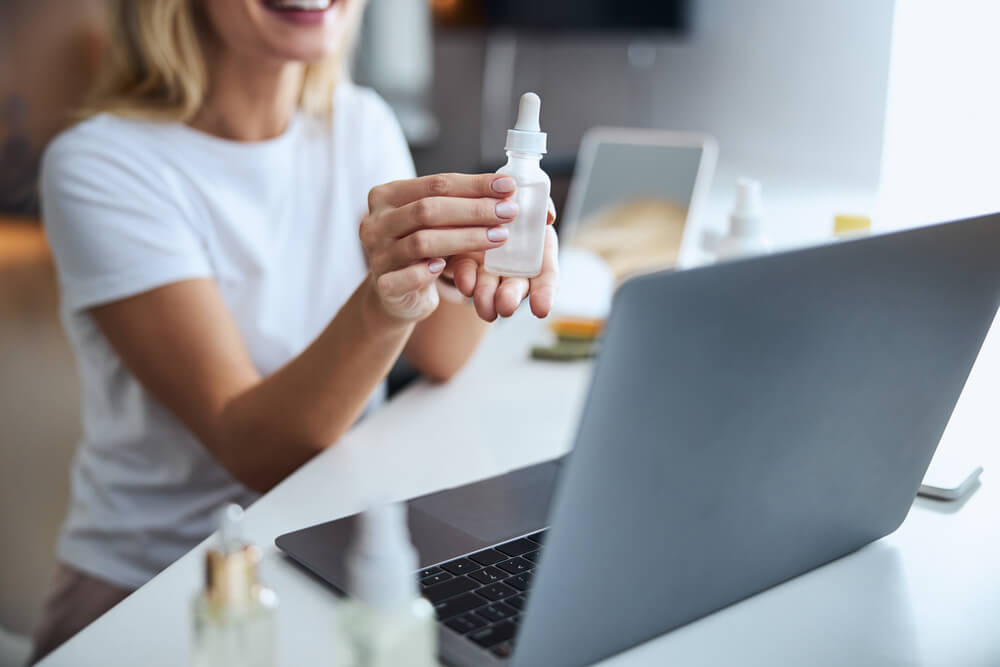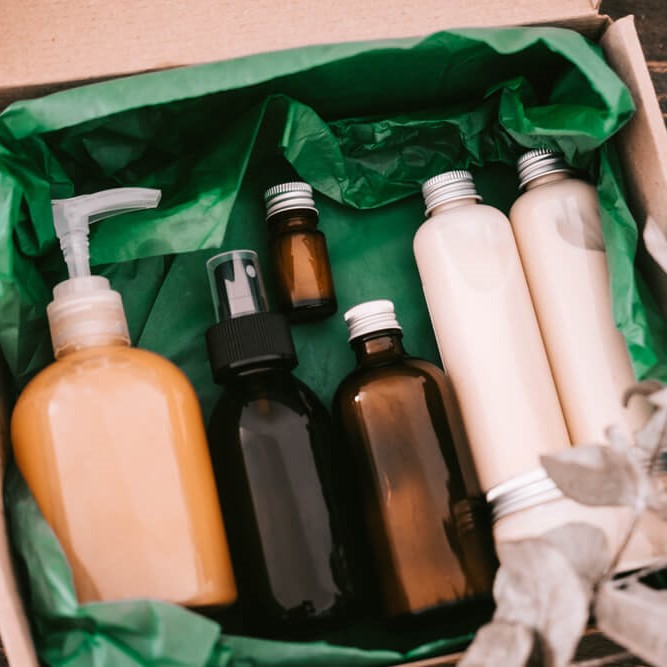One of the coolest things about launching your own business is getting to make physical goods that people will love. Some people relish the art of designing each and every product formulation in their cosmetics business, while others prefer to leave the reins to their research and development team so that they can focus on other things, like marketing and social media.
Every entrepreneur’s style is different when it comes to manufacturing their products. So, it’s no surprise that there are lots of different business models to consider when launching a business. Two of the most popular business strategies for entrepreneurs are white label vs private label.
Although these two business models have a lot in common, they have stark differences as well. Some people even confuse the two and think they’re interchangeable (spoiler alert: they’re not).
So, how do you choose between white label vs private label? Today, FLPL will talk about how different they are from one another, and which one you should go for depending on your entrepreneurial style and preference.
Private Labeling and White Labeling are Awesome for New Entrepreneurs
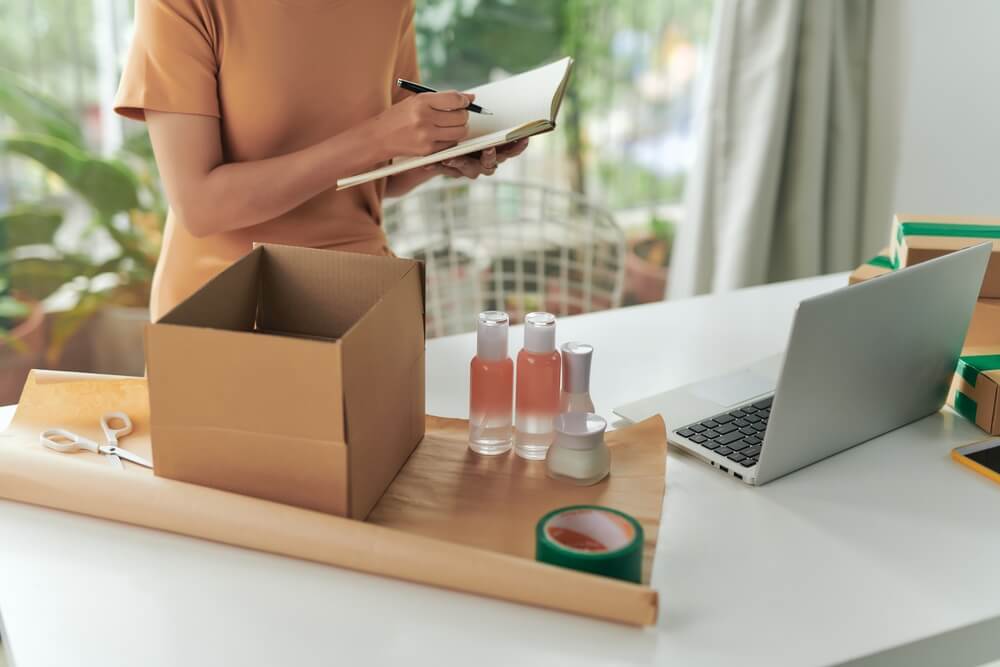
It’s challenging to produce your own goods when you’re a first-time business owner of a small brand. But don’t fret. You can always outsource your product manufacturing to a team of experts so that you don’t have to worry about it. There are two popular ways to do that — private labeling and white labeling.
First, let’s define a private label. Private labeling is when a business hires a third-party manufacturer to mass-produce its physical goods for them.
The business owner helps design the product and calls most of the shots about its features. However, it’s ultimately the third-party company that actually makes the goods. Then, these products are branded with the business’ logo and packaging, and then sold to customers.
The demand for private label brands has grown rapidly over the last couple of years (thanks to consumers wanting more variety and lower prices in their purchases). So, it’s becoming more and more popular among aspiring entrepreneurs as well.
Then we have white labeling, which is similar to private labeling. However, the process is a lot faster.
Instead of having the business owner help in designing the formulas of the products, the white label manufacturer creates the products based on their own expertise without consulting the business owner. The role then of the business owner is to pick and choose which of these pre-made products they can “buy”, and then, later on, slap their branding on them and sell them under the company name.
The Two Business Models Have Many Things in Common…
White label and private label both allow for simpler operations for new businesspeople. This is very helpful for those who have no other means to produce high-quality goods.
Both business models involve a third party to help in manufacturing products for companies that don’t have an existing inventory of products to sell yet. They’re both awesome routes to take if you’re starting a cosmetics business for the very first time.
Both white labeling and private labeling also take out a lot of the stress of launching a business. Instead of pouring over every step of the production process and hiring chemists and engineers for your team, you can simply choose a trusted manufacturer for your business and focus on other things, like marketing and financing your company.
Another thing white label vs private label have in common is that both business models place huge importance on marketing and packaging. If you white label or private label your products, you still have full control of your creative marketing strategy.
That means you need to put a lot of thought into your beauty product label, and consequently, your product packaging. This is especially true for white labeling. You need to work twice as hard to make sure your branding and marketing stand out, since you’ll have competitors selling the exact same product as you.
…But Also Have Stark Differences
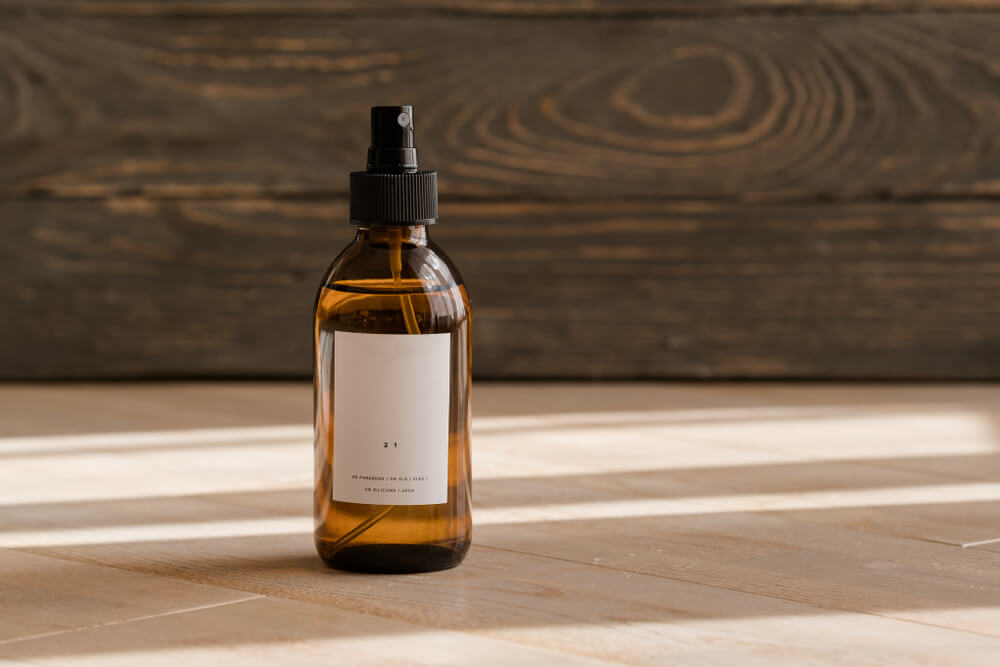
Although they have lots of similarities, white label vs private label are still very different. One of the most significant of these is the fact that private label brand owners are more involved in the product design process than their white label counterparts.
In a private label partnership, the business owner can make all the major decisions about the product’s intrinsic features, like what ingredients go into the product and how they should perform. So, private label products are unique and are exclusively sold under that proprietary brand.
On the other hand, in a white label partnership, the manufacturer produces the goods without having to consult the business owner.
The generic, pre-made products are “bought” by the business owner, who then brands them through product packaging and sells them as their own. That’s why it’s called “white label” — a blank, white label implies that you can just scribble your brand name on a product to mark it as yours!
It’s difficult to say which is better — white label vs private label. The answer depends on what you’re more comfortable with as an entrepreneur. Here’s which business model you should go for depending on your situation:
If You Want More Control of Your Product Formulations to Make Them More Unique…
There are plenty of reasons to have a private label on your cosmetics products, but the best one is that your products can be unique vs your brand’s top competitors. You get full control of the features and ingredients of your product offerings. This means they have a good chance of standing out.
Uniqueness is important to a business because it increases purchase intention in consumers. Perceived scarcity is another thing that makes a customer want to buy a product. So, the exclusivity of your products is also likely to boost sales, since it’s the only place they can get your products from.
For example, if you’re launching private label skincare products, you can play around with unconventional or up-and-coming ingredients that will surely give your brand an edge.
At FLPL, we have a wide range of cutting-edge ingredients to choose from in our extensive catalog for that very reason. It’s one of the things that makes us the best manufacturer for your private label skincare business!
So, if uniqueness is something you’re not willing to compromise in your products, white label vs private label isn’t even a question — private label is 100% the way to go.
If You’re Cool with Having the Same Final Product as Other Brands…
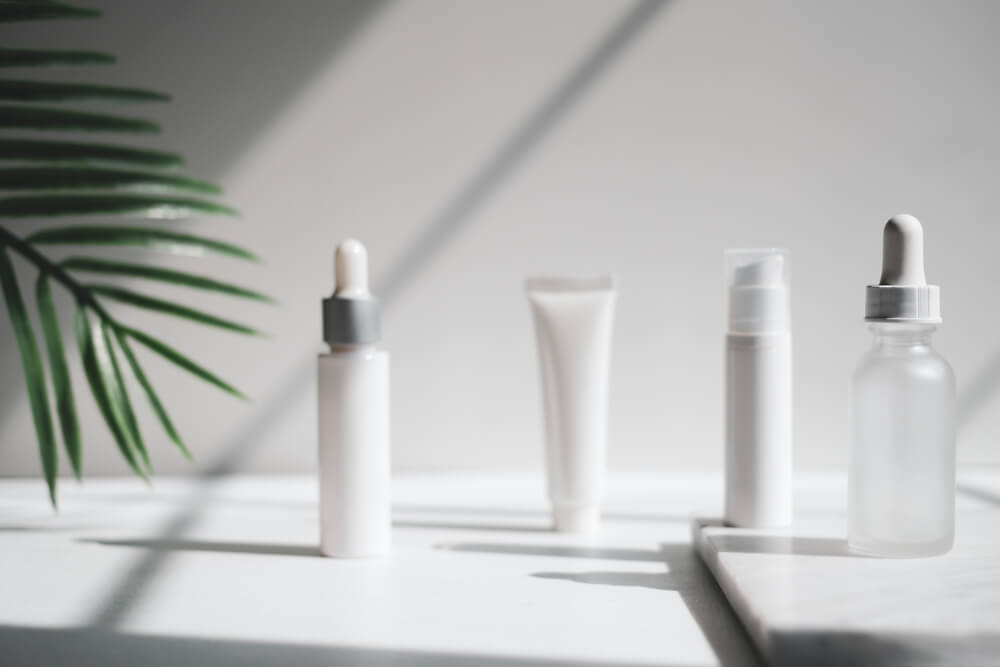
Now, if you don’t mind selling the same product as other brands (just under a different label), you could opt for white labeling.
Remember — you’re buying pre-made products from your supplier. That means other brands can do the same thing. So, there may or may not be brands out there that have the same product as you — just with a different brand name slapped on its packaging.
White label is a practical choice if you have very strong marketing skills. That’s because if you market your product in an extremely attractive and exciting way, people will still end up buying from you even if other brands in the market sell pretty much the same thing as you.
The only downside is that people may find out that you have a very similar product to another brand. This gives them a chance to source it from somewhere other than your shop.
Here’s a pro tip: when people find similar products from different brands, it always comes down to the price. So, if you’re going to white label your products, see if you can sell them at a lower price point to attract more buyers.
If Your Goal is to Cater to the Needs of a Specific, Niche Target Audience…
If your main priority is creating products to serve a specific concern for a specific audience, white label vs private label isn’t even an issue; you should always opt for private labeling.
This is because private labeling allows you to be more flexible in how you create your formulas. With a niche market in mind, you can customize your formulations to fit their needs and offer solutions to their pain points.
For example, instead of doing the usual hydrating serum that anyone can use, try creating specialized serums to address specific visible skin concerns, like hyperpigmentation or the signs of aging.
You can also niche down to target men — a very lucrative market segment — by offering men’s grooming and beard products.
Customizing products also applies to other cosmetic industries, like hair care. For example, those with coarse, curly, Afro hair need special hair care products that are rich, creamy, and moisturizing. So, if you want to target that niche as your main audience, make sure your products contain the likes of coconut oil and shea butter.
If You Want Your Product to be Used Universally by All Customers…
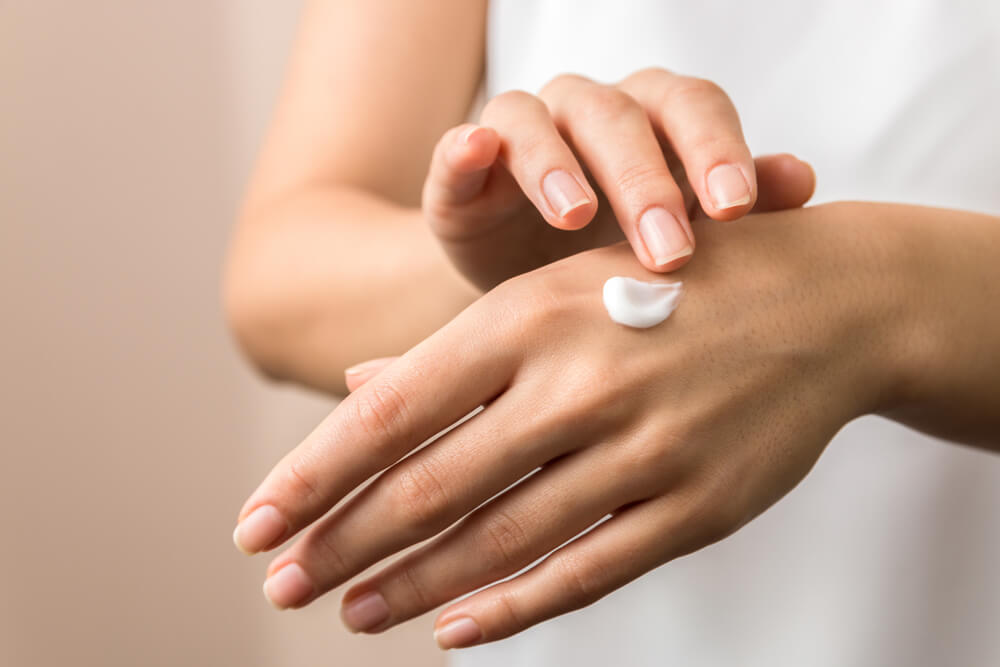
Of course, you don’t have to focus on just one community if you don’t want to. Your products can serve the general public as well.
If you don’t mind that your products don’t have any distinctive traits to solve a specific hair care or skincare problem, you can always white label generic products that are still high-quality.
For example, you might purchase some ready-made moisturizers from your supplier that are lightweight but also nourishing. That way, it’s great for both oily and dry skin types.
Bath and body care is another personal care segment that’s quite universal. After all, everyone showers! It’s a terrific category to launch a white label brand in.
If You Don’t Mind Taking Your Time Perfecting Your Brand and Product Offerings…
If you’re a hands-on type of entrepreneur, you should private label your products all the way.
One of the common myths about private labeling is that it’s super fast and mindless because not a lot of thought goes into it. But that’s not true at all.
The main difference between white label vs private label is that you don’t get to be as hands-on with building your brand’s flagship product with white label. So, if you’re passionate about knowing the ins and outs of your formulas and are in it for the long haul, private label is pretty much the only option.
Sure, private labeling takes more time than white labeling. But the return on investment is higher! Studies show that fleshed-out, authentic, well-thought-out branding increases brand trust, which can build a loyal fanbase.
Remember, slow and steady wins the race!
If You’re Looking to Launch a Brand ASAP…

But if you’re an impatient businessperson and are hungry for results right away, you might want to try white labeling. Because you’re simply buying pre-made products, you’re essentially cutting out the longest part of the process — designing and manufacturing the physical goods you want to sell.
White labeling is way faster and easier than launching a private label brand. So, if your goal is to start making money right away, white label is definitely for you.
Obviously, there are a lot of cons to this. You won’t be hands-on with your product formulation and design. This means there’s really no telling how your brand will perform until you get feedback from customers. It’s a huge risk, and we think taking the extra time to research and be more hands-on with your offerings is still the better way to go about creating a business.
White Label vs Private Label: Which to Choose?
If you’ve made it this far, then hopefully you would have already figured out which business strategy you prefer between white label vs private label.
There are many different reasons to private label your cosmetic products, the same way there are some circumstances where white labeling might be best for you. It really all depends on what you want to prioritize as a businessperson.
If you want to be more hands-on with your formulas and target a niche audience, private labeling may be the way to go. But if your main concern is launching a business fast and making sure your products are universally useful, white label might call out to you more.
Need help deciding between white label vs private label? Reach out to us so we can chat about it more. And, maybe, if you decide to choose private labeling, we can work together to make your dream brand a reality!

